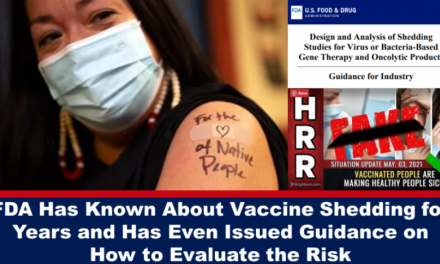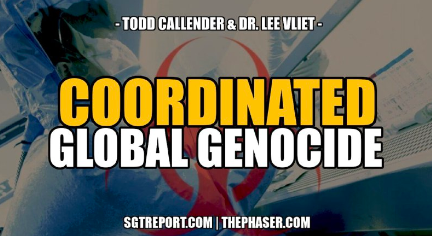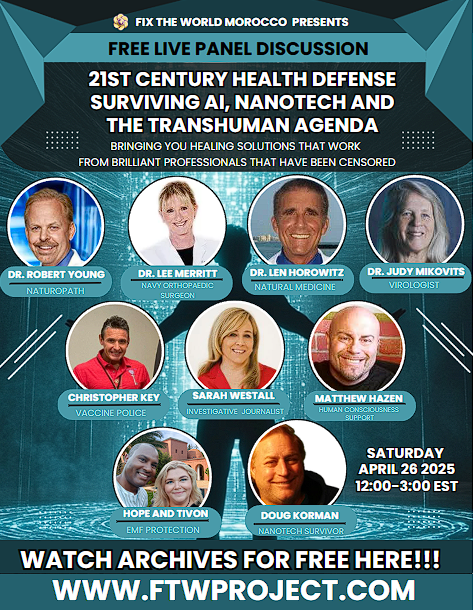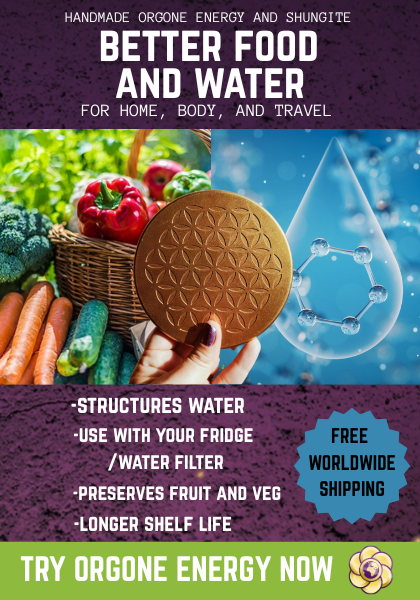“Terrible things happen when you lack the moral courage to refuse a steak,” they say. “Meatless diets will be good for humans and the planet.”
It takes decades of engineered narratives to get to this level of mindf*ckery, Jan Wellman writes. It takes a century’s worth of psyops to swallow the anti-meat narrative as if it was a series of scientific arguments. Unfortunately, it’s not the first time we’ve been taken for a ride.
Jan Wellmann has written an essay that considers six arguments given by those who push the anti-meat agenda. These are reasons which are commonly used to justify their narrative and demonise meat forming part of the human diet. He debunks them all. The reasons he tackles are:
- Ethical: The modern meat industry is evil – Part 2
- Efficiency: Meat production is inefficient and can’t nourish the global population – Part 2
- Health: Meat is bad for you and correlates with cancer, coronary disease, etc. – Part 3
- CO2: Meat production drives climate change – Part 4
- Better Alternatives: The new synthetic meat alternatives are healthier, more cost-effective, and more eco-friendly – Part 5
- Spiritual / Religious: Why should humans have the right to kill and eat other life forms? – Part 5
We have broken his essay into five parts as indicated above and will publish the parts, one a day, over the coming days. The following is Part 1 – the introduction of his essay, setting the scene so to speak, and the last time the powers that be took us for a ride with the forerunner to the anti-meat movement – The Grand Cholesterol Con.
The Vegan Backfire: The Truth Behind the Antimeat Agenda
By Jan Wellmann
Our dinner table will be void of high-density, natural, animal-sourced foods within a decade or two. A deeper look behind the agenda explains why it’s necessary to start planning for self-sustenance.
Tell Me What You Eat
“Tell me what you eat, and I will tell you who you are,” wrote the French gastronome Jean Anthelme Brillat-Savarin in his 1825 book Physiology of Taste.1
Friedrich Nietzsche agreed with the notion in Ecce Homo almost a century later. Nietsche tried vegetarianism but concluded that moderation and balance in everything were for the best, just like Brillat-Savarin, who also emphasised enjoyment and quality of food.
Another century later, it’s time again to remember that yes, indeed, “we are what we eat,” as the social engineers aim to eliminate high-density, animal-sourced nutrition – such as meat, dairy, and eggs – and replace it with plant-synthesised foods.
With “plants,” we don’t mean the living, growing things from nature but laboratory-sourced and factory-made variants.
Take, for example, plant seed oils, aka vegetable oils, which are almost entirely synthetic, and represent one of the most damaging, widely propagated nutrients available, damaging the gastrointestinal tract, undermining the microbial balance, and perforating the gut lining – cornerstones of our digestive, immune, and endocrine systems.2
Whether we like the idea of low-density, genetically manipulated, and chemically construed nutrients doesn’t matter. What matters is to optimise the CO2 impact of our future calories in a way that doesn’t destroy the planet.
This emotional, psychologically calibrated story consists of 50 per cent cosmetics and 50 per cent bullsh*t.
The real agenda is control.
As Henry Kissinger, Klaus Schwab’s grand old tutor and spokesperson of the World Government clan, supposedly said, “Who controls the food supply controls the people; who controls the energy can control whole continents; who controls money can control the world.”3
It doesn’t take a conspiracy theorist to realise that these tangents are now fully engaged. We’re on our way to a human paddock system. Once inside, the exit will be tricky.
We will focus on the food aspect below because it will have the most immediate and profound impact on what the human species will become tomorrow. If we fail to stop the present vector, we will face a catastrophically sicker and weaker constituency that relies on pharmaceuticals, boosters, and an AI-driven nanny.
Large swaths of the population have already been brainwashed to believe that the next meatless upgrade of the SAD (Standard American Diet) will be good for humans and the planet.
Once you’re Clockwork Oranged into the benefits of vegan synthetic burgers, a single image of a steak dinner may activate the words “cholesterol,” “ICU,” and “defibrillator” in your subconscious, along with a GIF animation of yourself writhing on a TV couch from a coronary attack.
You may also witness cows on pastel pastures farting methane clouds, responsible for sinking Bangkok, New Orleans, Miami, and Venice under the rising sea. Don’t forget the ice caps melting, polar bears drowning, their cubs starving, and your dreams of ever visiting Rome, Italy, vaporising because southern Europe is becoming a part of the Sahara.
Terrible things happen when you lack the moral courage to refuse a steak.
It takes decades of engineered narratives to get to this level of mindf*ckery. It takes a century’s worth of psyops to swallow the anti-meat narrative as if it was a series of scientific arguments.
Unfortunately, it’s not the first or the last time we got taken for a ride.
Historic Forerunner: The Cholesterol Con
Phasing out meat will likely overshadow the harm done by phasing out saturated fat, which began with the 1980s “low-fat” craze, aka the “saturated fat-clogs-arteries” myth.
What happened within a few low-fat decades is historical, as evidenced by the explosion of obesity rates in industrialised countries.
The low-fat disinformation campaign used cholesterol as the patsy. Eating fat leads to excess cholesterol leads to heart disease story. Today, we know it was a fabrication from beginning to end.
According to the latest peer-reviewed research, “consuming a diet consisting of a high percentage of natural fats, a moderate amount of protein, and a low ratio of carbohydrates will help us lose weight, prevent disease, satisfy our appetite, reduce food cravings, and promote longevity.”4
Consuming good fats – coconut oil, olive oil, organic meat fats, avocado, fish oils, etc. – is a reliable way to gain high-density calories while losing weight healthily without affecting our cholesterol level.
Besides, uncorrupted science has known for a long time that cholesterol is vital for life. “It is a critical building block for hormones, a crucial part of the immune system, and central to the body’s tissue-repair apparatus. Without cholesterol, there would be no cell renewal and no life,” writes Dr. Jeffry Gerber in Eat Rich Live Long.
If you have stress and inflammation in the body, as most people do nowadays, your survival relies on increased cholesterol levels, as it helps heal and repair the damaged cells. Unless you pop a Lipitor, of course, and prevent the body from healing itself.
Due to the multibillion-dollar market for cholesterol-lowering pills, Big Pharma – assisted by Big Media and Big Healthcare – first demonised cholesterol and second manipulated the threshold for diagnosing “high cholesterol” until almost every human on the planet met the criteria to pop a statin. By 2011, Pfizer was making $11 billion on Lipitor alone. By 2021, Lipitor had aggregated lifetime sales of over $163 billion.5 6 7 8
That’s quite a performance for a pill with serious side effects – including rapid memory loss, balance issues, and acute muscle pain – and a near-zero impact on longevity or well-being. 9 10
The Grand Cholesterol Con will live in infamy and can probably only be surpassed by the legacy of the mRNA shots11, but that’s another (developing) story.
Now we’re entering the next level of harm potential for humanity. As we shall see from objective nutritional data, going meatless will be a turbo accelerator for the already failing collective physical and mental health. Or let’s just say “health” since “mental” and “physical” are both aspects of metabolic health, driven by our standard of nutrition and lifestyle.12 13
The new nutritional reality will also do nothing to climate change while compromising efficient land management to the point of planetary self-sabotage.
The Arguments Against Meat
The chief arguments against meat – according to the engineered narrative – are the following:
- Ethical: the modern meat industry is evil.
- Efficiency: meat production is inefficient and can’t nourish the global population.
- Health: Meat is bad for you and correlates with cancer, coronary disease, etc.
- CO2: Meat production drives climate change.
- Better Alternatives: The new synthetic meat alternatives are healthier, more cost-effective, and more eco-friendly.
- Spiritual / Religious: why should humans have the right to kill and eat other life forms?
There are probably more, but let’s tackle these first.
A continuation of Wellmann’s article will be published tomorrow. You can read his full article HERE.
References:
1 Brillat-Savarin advocated the following in his book:
- The importance of moderation: Brillat-Savarin believed in moderation and balance when it came to food consumption. He emphasized that overeating could lead to discomfort and health issues.
- Quality over quantity: He valued the quality of food rather than focusing solely on the quantity. This idea promotes the enjoyment of flavorful, well-prepared meals in appropriate portions.
- Enjoyment of food: Brillat-Savarin believed that the pleasure derived from eating was an essential aspect of the dining experience. He encouraged savouring and appreciating the flavours and textures of food.
- The impact of diet on health and well-being: He recognized that what one consumes can have a profound effect on overall health and well-being. Although he did not prescribe a specific diet, he acknowledged that certain foods could be harmful to health, such as excessive sugar consumption.
- The role of gastronomy: Brillat-Savarin saw gastronomy as a vital part of society and culture, with food serving as a means to connect people and celebrate traditions.
In summary, while Jean Anthelme Brillat-Savarin did not advocate a particular diet in “The Physiology of Taste,” he emphasized the importance of moderation, quality, enjoyment of food, and the impact of diet on health and well-being. These ideas can be interpreted as advocating for a balanced and mindful approach to eating.
2 Dr. Mark Hyman: Why Vegetable Oils Should Not Be Part Of Your Diet https://www.ecowatch.com/dr-mark-hyman-why-vegetable-oils-should-not-be-part-of-your-diet-1882164589.html
3 Vedmore, Johnny, Unlimited Hangout, March 10, 2022, Dr. Klaus Schwab or How The CFR Taught Me To Stop Worrying And Love The Bomb:
4 Dr. Jeffry Gerber and Ivor Cummins, Eat Rich Live Long
5 Worldwide revenue of Pfizer’s Lipitor
6 The Great Cholesterol Con by Dr. Malcolm Kendrick
7 Talking about fats, cholesterol, statins… and other modern medical fallacies
8 Projected top 10 pharmaceutical products worldwide
10 Kendrick, Malcolm. The Great Cholesterol Con: The Truth about What Causes Heart Disease and How to Avoid It. London: John Blake, 2008, P156
11 Should We Talk About The Sigma Nine Plus Unicorns? JAN WELLMANN AUGUST 31, 2022
12 Brain Energy Rescue: an emerging therapeutic concept for neurodegenerative disorders of ageing.
13 Harvard psychiatrist Dr. Chris Palmer outlines a revolutionary new understanding that for the first time unites our existing knowledge about mental illness within a single framework: Mental disorders are metabolic disorders of the brain.
Source Link: https://expose-news.com/2023/05/14/the-great-meatless-diet-con-part-1/
Bitchute: https://www.bitchute.com/channel/YBM3rvf5ydDM/
Telegram: https://t.me/Hopegirl587
EMF Protection Products: www.ftwproject.com
QEG Clean Energy Academy: www.cleanenergyacademy.com
Forbidden Tech Book: www.forbiddentech.website













